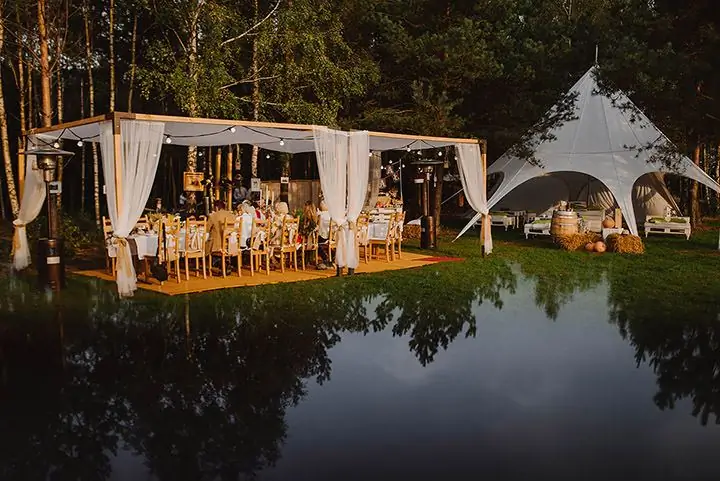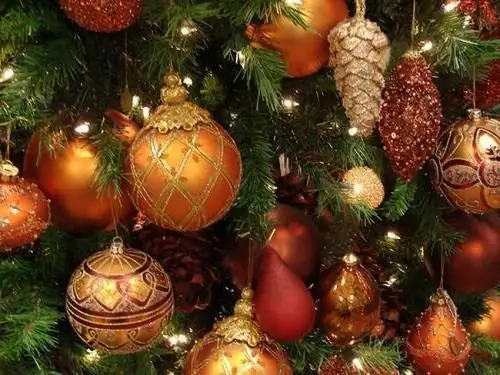2026 Author: Priscilla Miln | miln@babymagazinclub.com. Last modified: 2025-01-22 17:55:19
Ivan Kupala Day is one of the most beloved Christian-Slavic holidays. On the eve, on the night before Ivan's Day, folk festivals were held with many rites, ritual actions and games.

What date is Ivan Kupala Day celebrated, and where did this name come from? Earlier, in pre-Christian times, the holiday was held on the day of the summer solstice - June 22, and had a different name. Belarusians, for example, called him Sobotki. Then, with the advent of Christianity, it began to be celebrated on the birthday of John the Baptist, June 22, old style. Due to the refusal of the transition of the Russian Orthodox Church to a new style, this date was postponed to July 7, thereby losing its astronomical significance.
And what day is Ivan Kupala celebrated in other countries? Previously, on this date, the holiday was held almost throughout Europe. Today, the tradition has been preserved in Belarus, Ukraine, Lithuania, Latvia, Estonia, Poland, where it also takes place on July 7. But the Finns, for example, celebrate Ivan Kupala Day on June 22, like our ancestors.
Where the name came from, it is not difficult to guess if you remember how John the Baptistbaptized people. He dipped them three times in the waters of the Jordan River. Bathed, in other words. There is another version that there was such a Slavic god Kupala, but it has no confirmation, because until the 17th century there were no mentions of him. In addition, the name reflects one of the main rituals associated with this holiday - swimming in a pond and dew.

So how was this day celebrated - Ivan Kupala? The central place in the rituals was given to water, fire and plants: flowers, herbs, berries, trees.
It all started in the evening of the previous day. Before sunset, the peasants bathed in a nearby reservoir (river, lake, pond) or in a bath if the water temperature was too low. Then they girded themselves with herbs, from which wreaths were woven with the addition of flowers and roots, after which, just before sunset, huge fires were lit on the banks of the rivers. For different peoples, the details of the festival were somewhat different, but the general outline was preserved. In addition, bathing and eating cherries were prohibited everywhere until this day.
Girls and boys, holding hands, jumped over the fire. If at the same time their hands remained fastened, and even sparks from the fire flew after them, there was no doubt that the couple would live happily ever after. Jumping over a fire with a "stranger" guy or girl was equated with treason.

There were many more rituals held on Ivan Kupala Day. Among them is the search for a fern flower, which, according to legend, blooms only one night inyear. Whoever finds it will learn to see all the underground treasures, understand the language of animals and birds, and open the locks of any treasures in the world.
On this extraordinary night, herbs were collected, allowed to be sprinkled with dew, then dried and used throughout the year for healing and magical purposes. In the morning dew they tried to “bathe” themselves, they collected it and then used it to protect them from evil spirits.
As for the evil spirit, that night it was especially strong (as our ancestors thought). Therefore, they staged "Kupala atrocities": they stole various utensils, carts, barrels from neighbors from the yards, then they dragged them onto the road or piled them on the roof, drowned something, burned something. Initially, this was done for “protective” purposes, in order to protect oneself from unclean forces, deceive them and knock them off the trail, then they no longer remembered this meaning, but simply “played tricks” for their own pleasure.
After the dawn came, the festivities ended with round dances around the Kupala tree, followed by its burning. The sunrise was watched with great attention, because there was a belief that it "plays" on Midsummer's Day: it changes its location, color. Only a true righteous man or one who is about to die soon or some epoch-making event in life could see this.
Recommended:
Slavic wedding: description, traditions, customs, outfits of the bride and groom, decoration of the hall and table

Wedding is an incredibly important event in the life of every person, requiring careful preparation and marking a new stage in the life and relationships of lovers. Ancestors treated this event with due respect and awe, and therefore it is not surprising that the traditions of the Slavic wedding are attractive for those who get engaged today
Celebration of the New Year: history and traditions. New Year Celebration Ideas

Preparing for the New Year can be done in different ways. Some of us love a quiet family holiday with Russian salad and a Christmas tree decorated with antique toys. Others go to celebrate the New Year in another country. Still others gather a huge company and arrange a noisy celebration. After all, a magical night happens only once a year
Day of Slavic writing as a symbol of the unity of fraternal peoples

Day of Slavic Literature is a holiday celebrated by many peoples of Slavic origin (Russians, Ukrainians, Belarusians, Bulgarians, etc.). It is dedicated to the memory of the creators of the famous Cyrillic letter - Equal-to-the-Apostles brothers Methodius and Cyril
Feast of Ivan Kupala: history, traditions and customs. Signs on Ivan Kupala

Celebrate it began in the hoary pagan antiquity. Among the Eastern Slavs, it fell on the day of the summer solstice on June 24th. But after the introduction of the Gregorian calendar, the date shifted to July 7th. Celebrations and rituals of Ivan's Day necessarily include three main components: fire, water and herbs
Magic holiday - the day of Ivan Kupala

Mysterious and mystical, the day of Ivan Kupala is rooted in ancient times. Few people know about him today. Researchers believe that the Midsummer Festival, which is characteristic of most pagan beliefs in Europe (an analogue of which is the day of Ivan Kupala), is one of the oldest religious cults on Earth

